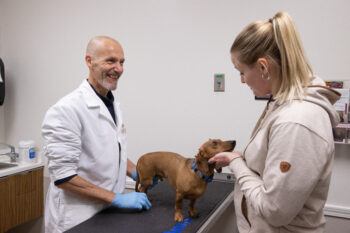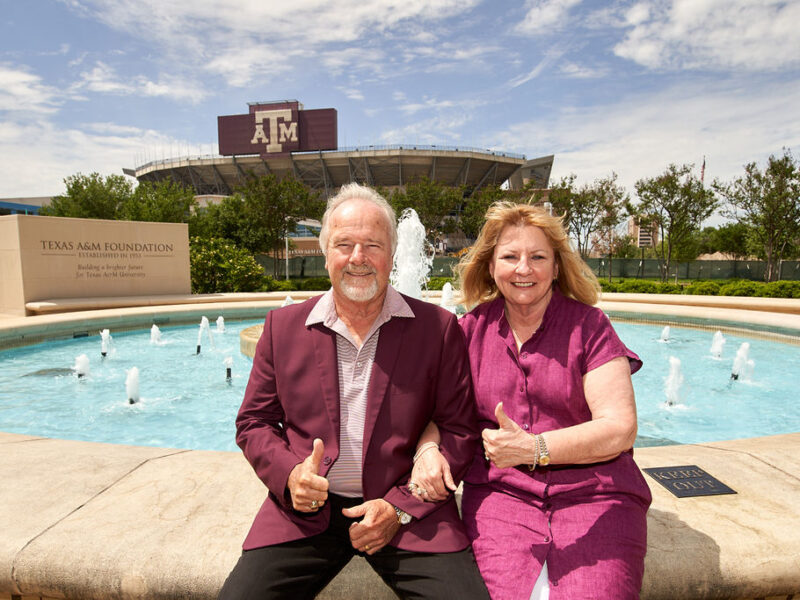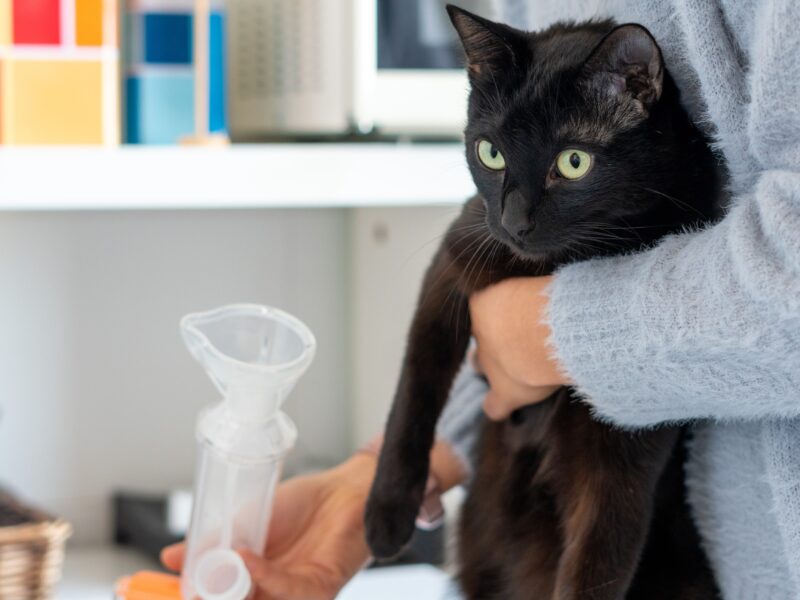Texas A&M Professor Recognized With Prestigious Veterinary Award

Dr. Nicholas Jeffery, a professor at the Texas A&M School of Veterinary Medicine & Biomedical Sciences (VMBS), is the 2024 recipient of the Bourgelat Award, an honor from the British Small Animal Veterinary Association (BSAVA) that recognizes unsung heroes of the veterinary profession who have made significant contributions to veterinary science, research, clinical practice, education and the welfare of small animals.
“I feel greatly honored to receive this award, especially since it is named after an important pioneer of veterinary medicine — Dr. Claude Bourgelat — who established the first veterinary school in the world in Lyon, France,” Jeffery said.
As an internationally recognized veterinary neurologist, surgeon and scientist, Jeffery is both an ideal candidate and deserving recipient of the highest honor bestowed to just one veterinarian each year by the BSAVA.
“Dr. Jeffery has been an outstanding influence in the lives of companion animals worldwide with his work advancing the treatment of spinal cord and nervous system injuries in dogs,” said Dr. John R. August, the Carl B. King Dean of Veterinary Medicine at the VMBS. “His foundational research, development of novel diagnostic tools and therapeutic strategies, and leadership of groundbreaking clinical trials provide invaluable advancements in veterinary medicine and make him deserving of this prestigious honor from the BSAVA.”
One of Jeffery’s recent achievements includes the development of a new, less-invasive method for treating herniated discs in small dogs.
“Dogs often herniate discs in their spine; it can lead to paralysis in the back legs and incontinence,” Jeffery said in a story published about his work. “The usual way we treat this is by doing surgery to take that disc out, but that’s really quite expensive and a lot of people don’t have that sort of money.”
Jeffery’s method, which involves injecting an enzyme into the disc to dissolve it instead of surgically removing it, went to clinical trial last year and proved successful in treating patients while also providing owners a more affordable option for restoring their pet’s quality of life.
Additionally, Jeffery has played an instrumental role in defining MRI-based features of injury, which are still used to aid in the diagnosis and delivery of therapies, and he continues to enhance veterinary medicine with his ongoing efforts in research, clinical trials, publication, veterinary practice and teaching.
His relentless innovation has resulted in more than 200 peer-reviewed publications — many of which continue to influence veterinary and biomedical practices worldwide — while his textbook, “Handbook of Small Animal Spinal Surgery,” serves as a critical resource for students and practitioners.
In addition to publishing his own research, Jeffery also has provided guidance to aspiring researchers and clinicians in the field as editor-in-chief of the Journal of Small Animal Practice.
“Dr. Jeffery is an innovator who continues to explore novel ways to treat different diseases, and he’s relentless in challenging conventional thought,” said Dr. Jonathan Levine, head of the VMBS’ Department of Small Animal Clinical Sciences. “His perspective is vital to our educational, research and service missions.”
Jeffery joined the faculty at Texas A&M University in 2016 and has mentored 18 doctoral students and numerous neurology residents, many of whom now have established careers in academia and industry. He came to Texas A&M after serving at the University of Cambridge and the University of Iowa, and his veterinary career began in London with the opening of the city’s first private small animal specialty practice.
In addition to being an influential and celebrated veterinarian, scientist and researcher, Jeffery is a Diplomate of the European College of Veterinary Surgeons and Neurology and a Fellow of the Royal College of Veterinary Surgeons. His degrees include a BVSc (DVM equivalent) from the University of Bristol, a Ph.D. from the University of Cambridge, a postdoctoral fellowship from the University College London, and a master’s degree in clinical trials design from the University of London.
“My work has always been guided by problems that come up in the clinic,” Jeffery said. “I work to find out how to design treatments and address these problems in my research, which depends on input from many collaborators I’ve had the honor of working with over the decades. I also try to help other people design and analyze their research projects, because clinical research is central to improving the care we provide for our animal patients.”
Media contact: Jennifer Gauntt, jgauntt@cvm.tamu.edu, 979-862-4216





